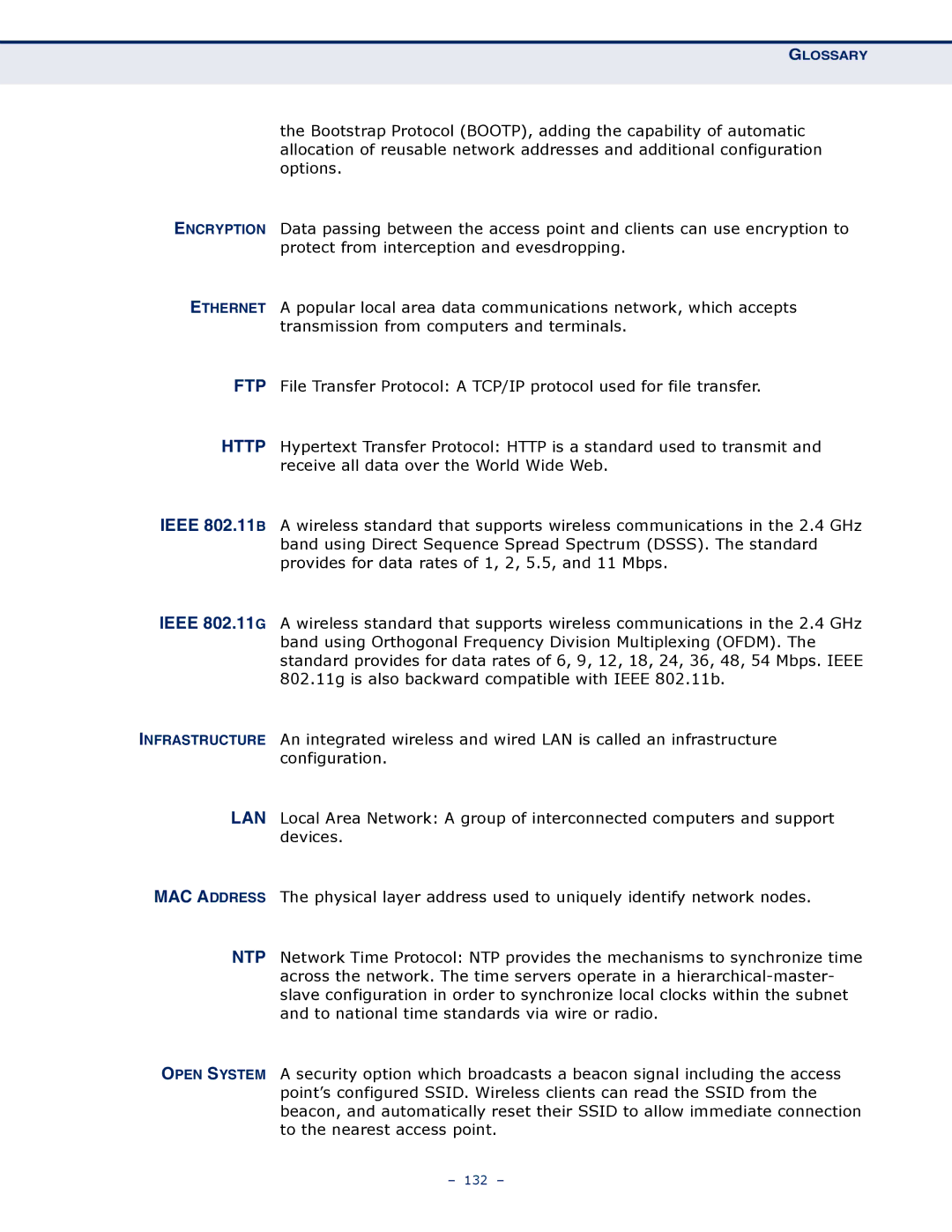GLOSSARY
the Bootstrap Protocol (BOOTP), adding the capability of automatic allocation of reusable network addresses and additional configuration options.
ENCRYPTION Data passing between the access point and clients can use encryption to protect from interception and evesdropping.
ETHERNET A popular local area data communications network, which accepts transmission from computers and terminals.
FTP File Transfer Protocol: A TCP/IP protocol used for file transfer.
HTTP Hypertext Transfer Protocol: HTTP is a standard used to transmit and receive all data over the World Wide Web.
IEEE 802.11B A wireless standard that supports wireless communications in the 2.4 GHz band using Direct Sequence Spread Spectrum (DSSS). The standard provides for data rates of 1, 2, 5.5, and 11 Mbps.
IEEE 802.11G A wireless standard that supports wireless communications in the 2.4 GHz band using Orthogonal Frequency Division Multiplexing (OFDM). The standard provides for data rates of 6, 9, 12, 18, 24, 36, 48, 54 Mbps. IEEE 802.11g is also backward compatible with IEEE 802.11b.
INFRASTRUCTURE An integrated wireless and wired LAN is called an infrastructure configuration.
LAN Local Area Network: A group of interconnected computers and support devices.
MAC ADDRESS The physical layer address used to uniquely identify network nodes.
NTP Network Time Protocol: NTP provides the mechanisms to synchronize time across the network. The time servers operate in a
OPEN SYSTEM A security option which broadcasts a beacon signal including the access point’s configured SSID. Wireless clients can read the SSID from the beacon, and automatically reset their SSID to allow immediate connection to the nearest access point.
– 132 –
